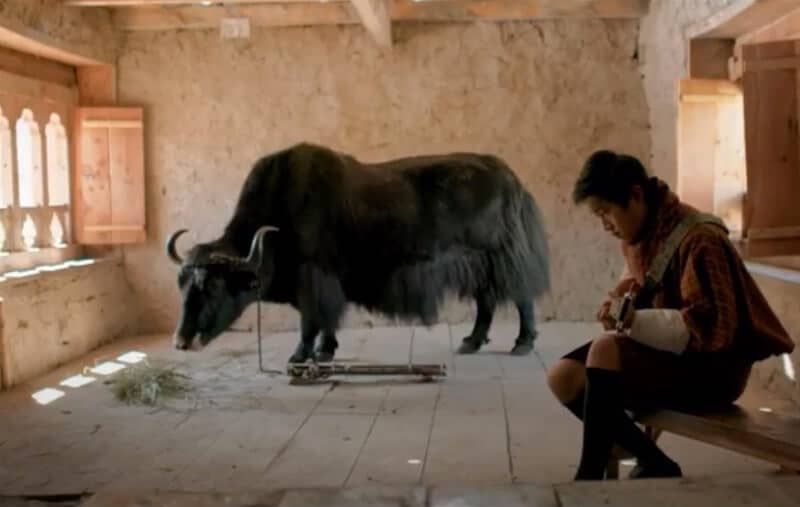Vassilis Kroustallis reviews the Oscar-nominated Bhutan feature by Pawo Choyning Dorji.
The surprise Oscar-nominated film from Bhutan follows a well-tread path to awareness, but it's a welcome one.
'Teachers touch the future'. This oft-repeated motto is again told in the non-original but still empathetic portrait of individual self-awareness in the Academy Award-nominated Lunana: A Yak in the Classroom by Pawo Choyning Dorji.
The Bhutan feature film whose chronicle of making equals the chronicle of its main character and travel in remote land. A young teacher Ugyen (Sherab Dorji) has a 5-year service contract with the Bhutan Ministry of Education, but he is not so willing to either teach or fulfil the contract's own requirement. His headphones, social outlets and an Australia visa in the waiting suggest a different future for him -far away from his landlocked Asian country. His grandmother's wish to keep him on board sound more like an incentive to do the exactly opposite. Until chance intervenes, and Ugyuen has to be transferred to Lunana -a Himalyan village of 56 inhabitants, and one of the remotest parts of the world. He would teach there till the end of his contract.
In a country where civil servants are considered an honor to serve their country, 'Lunana: A Yak in the Classrom' takes this national parameter seriously enough, even though it operates on the level of human-centered interactions symbolized in the yak animals as symbol of unity at all costs -rather than national mandates. The script, devoid of dramatic conflicts (but gracely doing so) has Ugyen first meeting his guides for an 8-day trekking journey into Lunana. His next step, to actually start teaching in a place where the blackboard is an unknown word.
There are minor tribes and tribulations in Pawo Choyning Dorji's film, yet the happy people of Lunana (most of which are real inhabitants) are indeniably amicable -with children eager to learn, English included. All Uguyen has to do is go with the flow.
Ugyen himself is finely given his own substance in the film; never too strained, never too relaxed, and Sherab Dorji makes him an empty vessel; eager to learn, with always inquiring eyes. Even though the tried and tested narrative patterns here are evident as a pack of yak in the Himalyan mountains, the environment itself (Pawo Choyning Dorji is clearly in love with Lunana) and its people are the perfectly genuine antidote to cliches. Smiling without being condescending, thoughtful without being tiresome, traditional and musical without being folk. Too idyllic perhaps (a story of a drunkard father is mostly used as an excuse for the nice villagers here) but still crafted nicely -in camera shots that enlighten the grand and the wide, and also the characters.
The film moves convincingly from one scene to the other, even though its budding romance looks rather unnnecessary here. It is wise enough not to procure a contrived resolution; it lets its characters breathe, feel and act through. That's a real treat.
Vassilis Kroustallis

